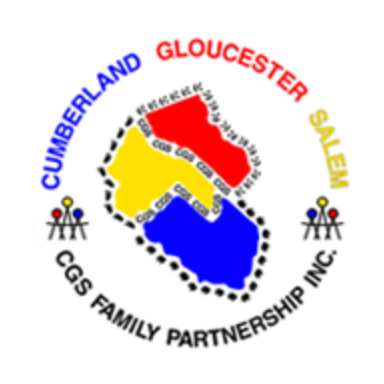How We Help
Youth is assigned a Care Manager
When youth are referred to CGS, they are assigned a Care Manager, who will act as the main point of contact with our agency. As we begin our work with youth and families, our first job is to listen to them, to hear their story, help identify needs to be addressed, and acknowledge their strengths.
Crisis Plan is Developed
One of the initial activities we need to complete with a youth and family is developing a Crisis Plan. The Crisis Plan is a document which details how to respond when a crisis occurs. It defines a crisis for the youth and family; identifies areas that lead to a crisis; describes strategies to deal with the crisis; and lists community resources to be used for further assistance. If a youth and family needs help to deal with a crisis after hours, on weekends, or holidays, CGS has on-call coverage.
In order to access the on-call system, please call the CGS office number at 856-716-2100
Building a Child-Family Team
The Care Manager will work with the youth and family to help them develop their Child-Family Team. The Child-Family Team is made up of people who know the youth and family best. The team is a balance of formal supports (for example, a therapist, DCPP worker, probation officer, FSO peer support partner, or teacher) and natural supports (for example, other family members, friends, neighbors). All decision making is done through the Child-Family Team. More Details
Creating an Individual Service Plan (ISP)
The Child-Family Team meets regularly to create an Individual Service Plan (ISP). The ISP addresses various life domains including mental health, safety, family, education, vocational, legal, financial, housing, and other relevant areas. It identifies the youth/family’s long term goals, also known as the family vision, their strengths, and their needs. The ISP then describes specific strategies for how the child-family team will address those needs. It also becomes the way for the youth/family to access services and supports. More Details
Ongoing Contact
The Child-Family Team will continue to meet on an ongoing basis to review the success of the Individual Service Plan (ISP) and change it as needed. In between team meetings, the Care Manager will have contact with the youth and family and other members of the team. Examples of contact could include face to face meetings in the family’s home, visits to the youth’s school, or phone calls with a service provider on the Child-Family Team.
Transition
Upon engagement our care managers are focused on transition planning with the youth and family. Transition from CGS can occur for any of the following reasons: the Child-Family Team assisted the family to reach their family vision, or the youth’s behavior is stable. A youth’s stable behavior indicates the family no longer needs the intense support of their Care Manager. Or, the youth and family moved out of Cumberland, Gloucester, or Salem County or left the State of New Jersey. Transition will also occur if a family, for personal reasons, chooses to no longer be involved with CGS. Lastly, our care managers will transition if there is no contact with a youth and family for thirty days.
Regardless of the reason for transition, we will provide the youth and family with information on how to access future services and, whenever possible, assist in referring to those services.
